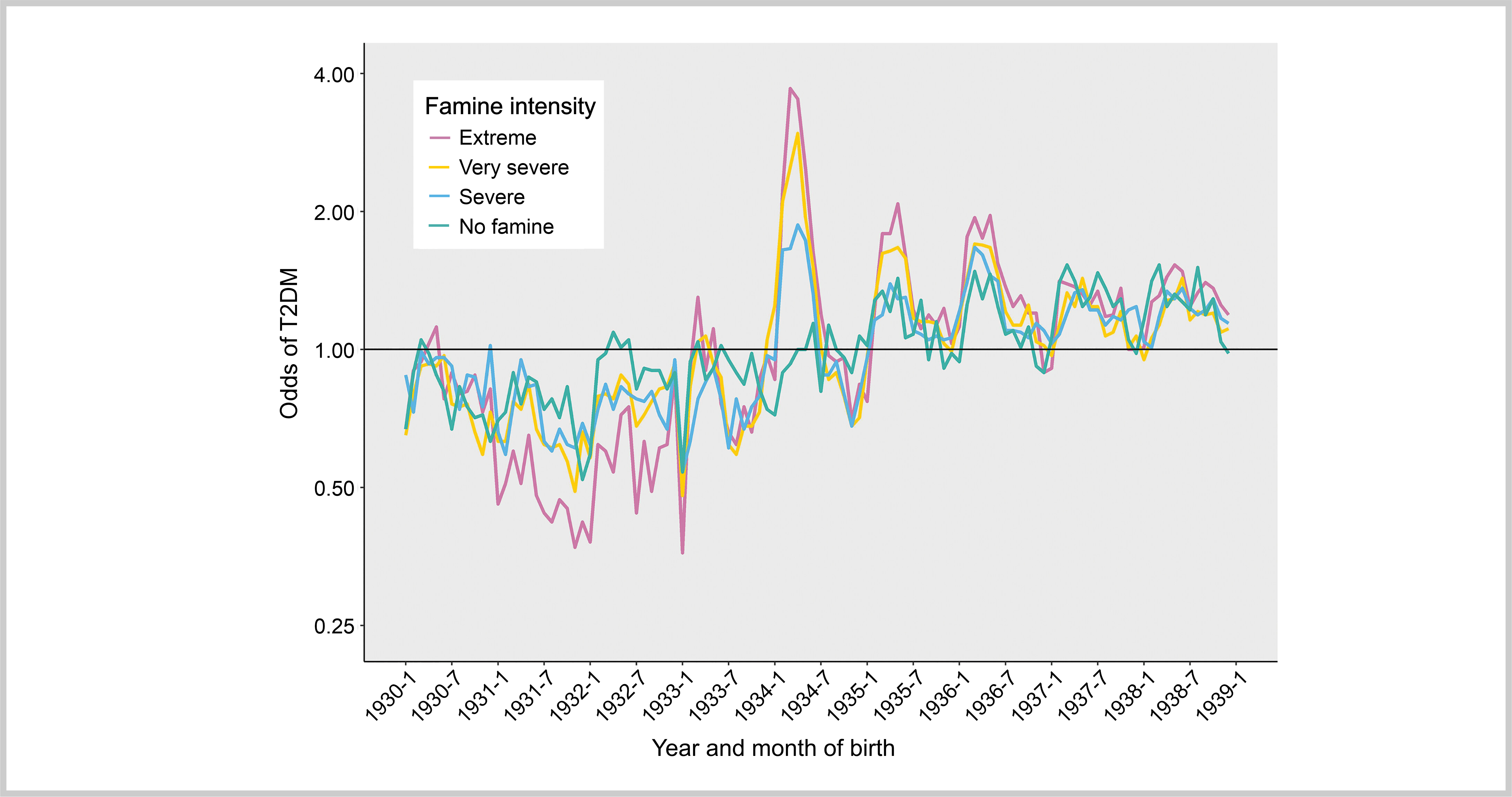November 21, 2024 | News | SPOTLIGHT
Health in the Shadow of Holodomor: The Impact of Prenatal Famine
[SPOTLIGHT]
Holodomor in Ukraine: Study shows increased risk of type 2 diabetes in adults born shortly after famine
A current study by Prof. L. H. Lumey (Columbia University, New York) and Dr. Nataliia Levchuk (Max Planck Institute for Demographic Research (MPDIR) / Ptoukha Institute for Demography and Social Studies, Kyiv) et al. published in Science on August 9 examined the long-term effects of prenatal famine on adult health. The researchers analyzed data from people born before, during and after the 1932-1933 Holodomor in Ukraine and found that those born during the famine had a two-fold higher risk of type 2 diabetes in adulthood. The findings highlight the importance of maternal nutrition in early pregnancy and prenatal care, especially in times of crisis.

View of the Holodomor Museum in Kyiv, Ukraine. © istockphoto.com / Hanna Bohdan
On the occasion of Holodomor Memorial Day on 23 November 2024, we present in this [SPOTLIGHT] a recent study by L. H. Lumey and Nataliia Levchuk and others. The researchers have highlighted the potential long-term effects of prenatal famine on adult health. They examined the association between prenatal famine and the onset of type 2 diabetes in adulthood in the historical context of the Holodomor famine in Ukraine, which remains less explored compared to other historical famines, particularly in terms of its lasting health consequences.
Holodomor, meaning "death by starvation" in Ukrainian, refers to the devastating famine of 1932-1933 that disproportionately affected Ukraine. Although famine struck several regions of the Soviet Union during this period, Ukrainian Holodomor stands out as one of Europe's deadliest man-made famines. It was never acknowledged by Soviet authorities and was suppressed within the country, preventing discussion or remembrance until the 1990s. Estimates of excess deaths range from 3 to 5 million, with 3.9 million estimated by Ukrainian demographers.
The famine was a direct result of Soviet policies under Stalin, particularly forced collectivization and grain requisitions. However, in Ukraine, these policies escalated into total confiscation of grain and food reserves, accompanied by harsh repressions and persecutions of the rural population. These measures were not only aimed at meeting unrealistic grain quotas but also at suppressing Ukrainian resistance and asserting control over the region. Unlike other Soviet regions affected by the famine, Ukraine faced deliberate, targeted actions, making the Holodomor a unique and tragic chapter in history.
You can find out more about the Holodomor at
https://holodomor.ca/get-started/holodomor-basic-facts/
There is evidence that adverse conditions such as lack of food during pregnancy have a negative impact on adult health, but it is difficult to quantify the exact effects. Holodomor is characterized by a combination of factors: the large-scale fatalities, the high concentration of deaths within a relatively short period, and substantial regional variations in famine severity. These taken together provide a rare opportunity to explore the relationship between different levels of famine exposure and the likelihood of developing type 2 diabetes. The researchers collected extensive data from people born before, during and after the Holodomor in Ukraine. By comparing this information with data from a national type 2 diabetes registry from the 2000s, they were able to establish a dose-response relationship between prenatal hunger and the increased risk of developing diabetes in later life.
The study included 128,225 cases of diabetes diagnosed between 2000 and 2008 among 10,186,016 Ukrainians born between 1930 and 1938. The results show that people born in the first half of 1934 in regions with very severe or extreme famine, were more than twice as likely to develop type 2 diabetes in adulthood compared to controls who were not affected by the famine.
"The significance of our study goes well beyond the historical event, as it provides insights into the long-term health consequences of severe prenatal malnutrition. The findings underscore the critical role of maternal nutrition and prenatal care, not only at the time of a crisis, but also in its aftermath. People can face food insecurity during and after wars and conflicts,’ says Prof Lumey.
The study has some limitations, including the lack of individual measures of famine severity in the affected regions. Survivor bias might also be present, where those born during the famine may be more at risk of diabetes but also less likely to survive and be included in the registry. If so, the impact of famine would be even larger however than the study suggests. Limitations also include the lack of information on individual health behaviors and dietary habits in later life. In this setting, exposure to famine appears to be the dominant factor that overrides all others.

"Comparison of Odds of Type 2 Diabetes Mellitus (T2DM) in Different Regions of Ukraine Analyzed by Famine Intensity and Sorted by Month and Year of Birth (1930-1938)" © MPIDR
"Our findings highlight the need for governments and health systems to invest more in maternal and child health, particularly in regions affected by conflict and famine. They show the importance of acting quickly to alleviate food shortages," says Nataliia Levchuk.
Although the Holodomor took place more than 90 years ago, the issue has not lost its relevance in today’s world, as the authors point out in their study: "The three-month siege of the city of Mariupol in 2022 during the current war, with the aim of starving the population and forcing it to surrender, is a reminder of a current and real danger.
Lumey, L.H.; Li, C.; Khalangot, M.; Levchuk, N.; Wolowyna, O.:
Science 385:6709, 667–671. (2024)
